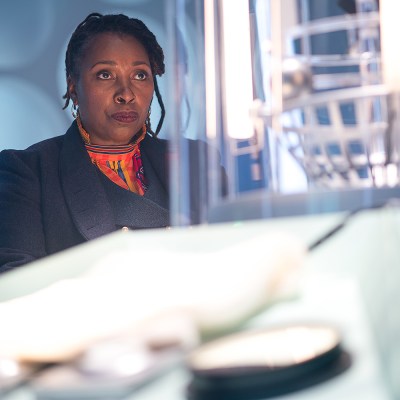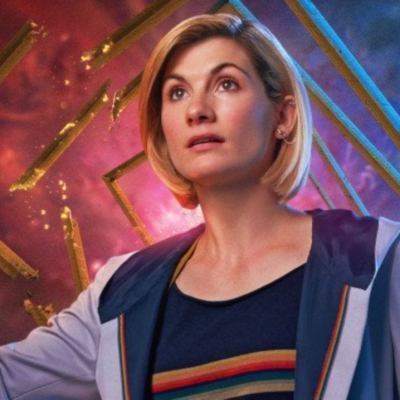Doctor Who Season 14 Wish-List: What We’d Like to See
After Chris Chibnall and Jodie Whittaker leave Doctor Who, what’s on the fan wish-list for the show’s future?

With the recent announcement that star Jodie Whittaker and showrunner Chris Chibnall will be departing Doctor Who following the next season, we have confirmation that Season 14 will be yet another opportunity to regenerate the long-running science fiction show. In that spirit, we reached out to the many Doctor Who viewers amongst our writers to get their personal fan perspectives on what they’d like to see from the next iteration of Who. Here’s what we came up with. Add your own wish-list items below…
Make the Doctor a Bit of a Bastard
My number one wish-list item for season 14 is I want the Doctor to be a bit of a bastard. Steven Moffat had his flaws, but one thing I loved was his interpretation of what the Doctor *is*. The way Moffat sees the Doctor is that there is this vast, ancient alien god, full of loneliness, grief, and rage that can burn out suns. And when it meets humans it pretends to be this fictional character called “the Doctor”, who is half idiot, half superhero (Of course, I think Moffat would also tell you that, though the Doctor might not know it, if you scratch the surface of the alien god behind the mask, you’ll find that deep down it is part idiot, half superhero).
The Doctor is your best friend, and that’s important, but also, sometimes the mask slips. The Doctor should be a bit scary as well as wonderful, and I don’t think Jodie Whittaker has had much chance to show that side of the character. She’s kind and clever and brave and heroic, but she should also get to bluster and be a massive egotist and look like an actual idiot. I hope her successor does get that. Chris Farnell

Vinay Patel as Showrunner
I don’t know if he wants the job, but writer Vinay Patel is my wish-list choice for the next showrunner of Doctor Who. Patel’s two Who episodes are not only among the most successful episodes in recent Who history, but succeed in different ways. With Season 11’s ‘Demons of the Punjab,’ Patel demonstrates that he is able to work outside the traditional Doctor Who formula, giving us a historical episode that challenges the colonialist framework arguably written into the DNA of the show. With Season 12’s ‘Fugitive of the Judoon,’ Patel was asked to incorporate many, many different plot elements into a single episode, without losing the focus or heart of the story—and he pulls it off. Doctor Who has made a big deal about recent strides in representation both in front of the camera, and in directorial roles—and for good reason—but we have never had a person of color in the most creatively influential role of all: head writer/showrunner. The job of showrunner is much larger than the job of an episodic writer, encompassing producer responsibilities in addition writing choices, and I would love to see what Patel could do with it. Or, if he doesn’t want the showrunner job, find him a good non-writing executive producer to support him in the role of head writer. Kayti Burt
More Solo Doctor Episodes
It’s rare to find the Doctor alone. But some of NuWho’s most memorable episodes―’Midnight’, ‘Waters of Mars’, ‘The Lodger’, and ‘Heaven Sent’ spring to mind―have had a conspicuous lack of companions. These companion-lite episodes run the gamut from comedic to exceedingly dark. But all of them benefit from the increased story-telling space created when the Doctor flies solo. Companions serve an important function in Doctor Who. They are audience stand-ins who interpret, question, and ultimately humanize the Doctor. Taking them away, then, forces both writers and viewers to re-learn who the Doctor is through the eyes of strangers. No companions also, from a practical stand-point, means fewer obligatory characters to juggle in NuWho’s tight 45 minute run-time. The writers are free to spend more time on the one-off casts of a given episode, investing us in the mundane struggles of an ordinary bloke who resembles his couch or illuminating the humanity of a shuttle of tourists before it is ripped away. Of course, Doctor Who without companions wouldn’t be Doctor Who. But sometimes a companion-lite episode is the perfect way to remind us why we keep watching. Zoe Kaiser
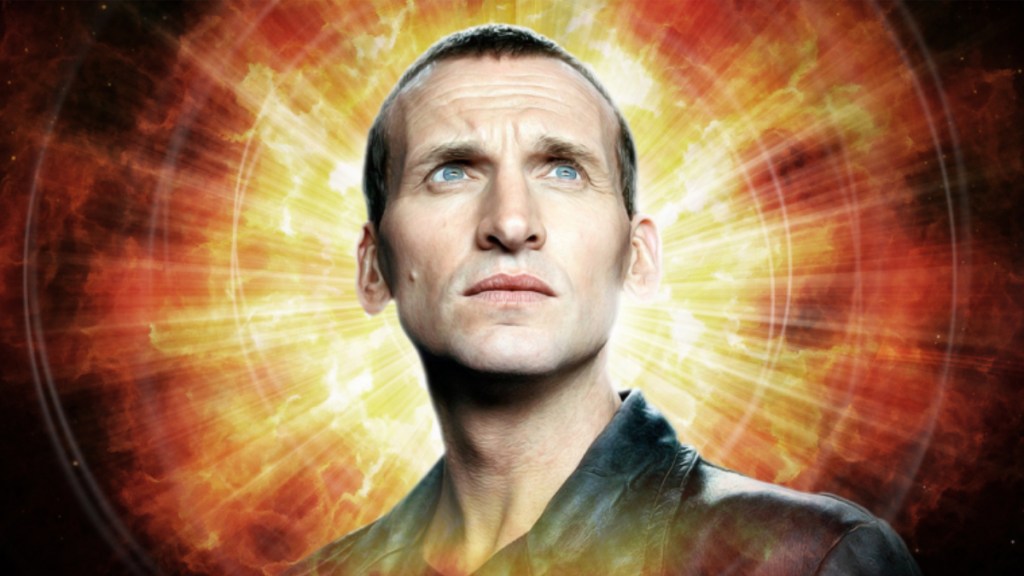
Give Big Finish a Crack of the Whip
They may have begun their contributions to the Doctor Who canon with a series of niche audio adventures during the show’s wilderness years, but today Big Finish are a lynchpin of the show’s expanded universe. Playing a pivotal role in 2020’s ambitious multimedia epic Time Lord Victorious, and then squeezing into their garden sheds to keep producing content during the pandemic, the team have repeatedly proven they’ve got the skill and imagination to make the most that all of time and space have to offer.
Just imagine what the Big Finish team could do if handed the reins for a run of adventures you could actually see. Whether it took the form of a fresh start with the next official Doctor or a selection box of old regenerations romping across reality, a palate-cleansing series of ‘new’ writers giving it their all on Saturday night telly before the regular format resumed could be just the thing to reignite the interest of fans whose attention has waned in recent years. (Also, they’ve got Eccleston’s phone number now. Just saying…) Chris Allcock
More Non-UK Episode Settings
I would like Doctor Who in Season 14 to use the TARDIS to see the Earth’s past and present beyond the UK. In the Classic era, many episodes both modern and period were set in the UK purely out of budget necessity. In addition, the early mandate for the series to teach children about the past also meant a heavy focus on Classic Who to cover many areas of UK history. Modern Doctor Who has filmed episodes or scenes in South Africa, New York, Spain, and Utah. There’s so much unexplored history ripe for alien meddling outside of the UK, especially including Asia, Africa, and Central/South America. The series has mentioned several worldwide alien invasions in modern times and the past. Why not have the Silurians wreak havoc in ancient Nigeria? Why do the Cybermen always appear in London first and not Tokyo? If Classic Who can use a soundstage to mimic the Aztec Empire, what excuse does modern Doctor Who have with multiple times the budget, greater access to research resources, and production technology? Hopefully, by Season 14, most pandemic restrictions would have been lifted to allow international filming to resume. There’s so much human history and modern-day experiences outside of the UK. Fans love reading up on the real history and/or modern references to plot events. The Doctor has seen the whole of human existence, Doctor Who is overdue for reflecting more of this. Amanda Rae-Prescott
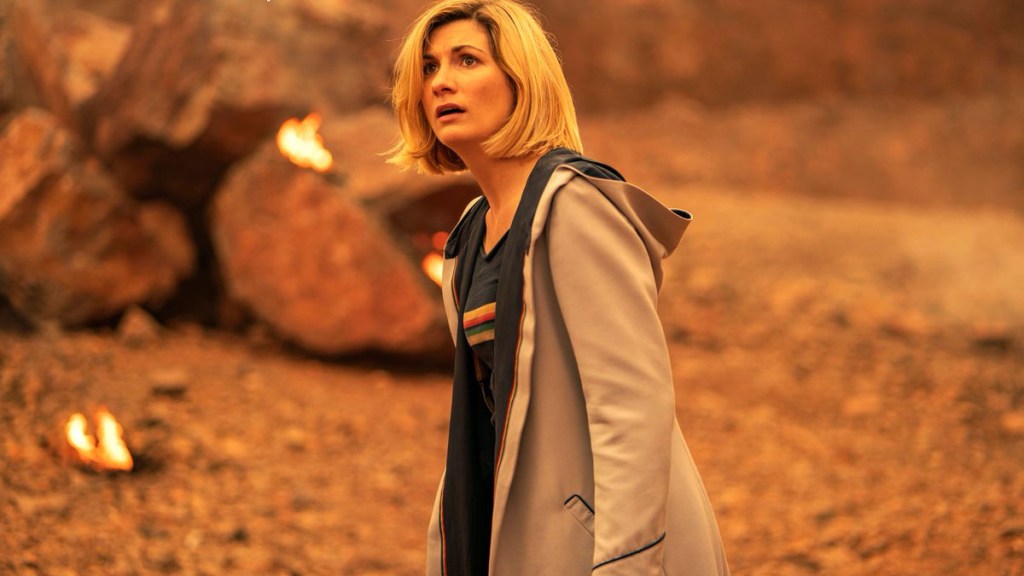
Retcon ‘The Timeless Child’ Revelation
I understand why Chris Chibnall was seduced by the narrative possibilities of ‘The Timeless Children’. Now that we know the Doctor has lived countless more lives than the 13 (ish) we’ve come to accept – many of them hidden behind a mind-lock following service to a secret Time Lord sect – there exists the tantalising prospect of a hidden Doctor lingering just over every horizon.
If we concede that it was a master-stroke for Russell T Davies to have introduced the Time War, an event that coloured the first of the modern-era Doctors in heavy shades of guilt and grit and regret, then it’s tempting to conclude that these more recent revelations will serve a similar function; that the Doctor’s seismic re-reckoning of their sense of themselves will unlock reservoirs of dramatic tension. Except… Well, there’s the old adage that says that if anything can be anything, then nothing means anything, and I think that applies here. A tweak is fine. But ‘The Timeless Children’ is a bite too big, a cheat, a rug-pull for the audience and character both.
Red Dwarf, too, plays hard and loose with canon, but if co-creators Grant and Naylor had decided to continue their saga with the mind-bending events of ‘Back to Reality’ cemented as fact, then Red Dwarf wouldn’t have been Red Dwarf anymore. We can only hope that a future showrunner, or even Chris Chibnall himself, is clever enough to ret-con the events of ‘The Timeless Children’ as nothing more than the cunning malfeasance of The Master. Jamie Andrew
Make it Scary. Properly Scary
Every time I talk about Doctor Who with my mum, the phrase ‘hiding behind the sofa’ comes up. Though I am a die-hard horror fan, I too had my share of – not hiding – but having nightmares after episodes of my generation’s Who – namely about the Sylvester McCoy era Cheetah People (coming to get me in my bathroom) and the Psychic Circus (my long-standing fear of circuses, clowns and reality TV talent contests was born here). While NuWho has definitely had some good scary ones – ‘Family of Blood’, ‘The Empty Child’, ‘Blink’ – we haven’t had a properly chilling arc in a while. And it does need to be an arc – setting up something terrifying and then defeating it in the space of 45 minutes and then moving along, doesn’t really cut it. I’d love something like ‘The Greatest Show in the Galaxy’ story, which gave us the Psychic Circus and ran for four episodes. Those sofas aren’t going to hide behind themselves. Rosie Fletcher
Writing That Better Reflects the Doctor’s Identity
Perhaps naively, I’m assuming that the Fourteenth Doctor won’t automatically revert to being a white, cis male in the wake of Jodie Whittaker’s departure. (Fingers crossed, I guess!) But, whether the next Doctor turns out to be another woman, a POC, a member of the LGBTQ community, or some combination of the above, I hope that Doctor Who realizes we need to see actual stories that reflect that identity.
During the Chibnall era, the show has been largely content to write a female Doctor as though that character’s experience wasn’t terribly different from any other incarnation of the Time Lord, with little focus on how historical sexism or the general misogyny of society might impact her. There were a few obvious exceptions to this – Season 11’s ‘The Witchfinders’ comes to mind – but, for the most part, Doctor Who hasn’t seemed terribly interested in exploring how a female Doctor might necessarily have to move through the universe differently than her male counterparts did. (I mean, the idea that random men throughout time and space would just… allow a strange woman to take charge and tell them what to do feels less realistic than the existence of the TARDIS). For our next non-traditional Doctor, I desperately want to see them navigate the world differently because the world reacts differently to their identity, rather than simply pretend there’s no real difference between Thirteen and the other incarnations that have come before her. Lacy Baugher
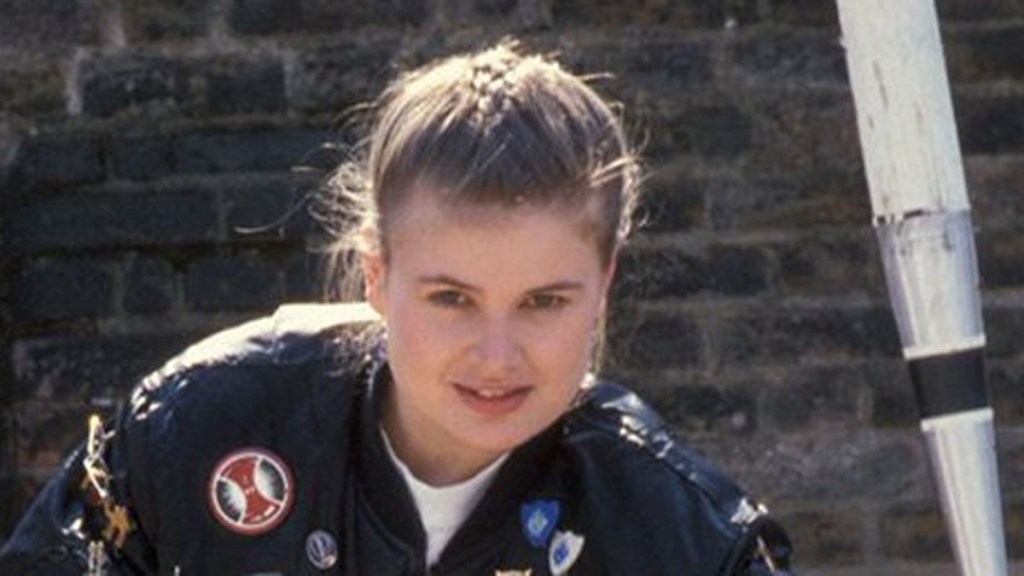
Bring Back a Classic Companion
It’s unlikely to the point of impossibility that we’ll see a Classic Doctor returning full time to the TARDIS for another crack at the cosmos, complete with age-worn face. But there’s nothing prohibiting a classic companion from rejoining Team TARDIS. Sarah Jane’s reunion with the Doctor in ‘School Reunion’, alongside David Tennant’s Tenth incarnation, provided goose-pimples galore, and kick-started a spin-off show that sealed Elizabeth Sladen’s reputation as one of Doctor Who‘s eternal treasures.
It would be great to see Jo Grant or Jamie or Ace meeting a new Doctor, and adjusting to another new face, while we, the audience, would get to see both how the companions’ lives had changed sans the Doctor, and how a classic companion would look filtered through our modern sensibilities. It could be fun, soulful, and touching. It would also introduce a new generation of Whovians to the people without whom the show wouldn’t have lasted as long as it has. Jamie Andrew
Make Kids Want to Play it in the Playground
This is a tricky ask. Children’s TV habits have moved a long way from the time you could stop a random child in the street and they’d be able to accurately recite the BBC One weekday schedule with allowances for interruptions by the chancellor’s budget and Wimbledon. It’s a different world. Less ‘Watch with Mother’, more ‘Watch a 31-year-old Danish man play Minecraft while also watching 2020’s Funniest TikTok Fails and liking a video of a Year 10 vomiting frozen honey.’ Capturing kids’ attention is hard, but if Doctor Who is going to have a future anything like its past, it needs to ignite a young audience. It needs to be doodled on pencil cases. It needs to transform airing cupboards into TARDISes and multi-colour Biros into Sonic Screwdrivers. Children need to careen around the playground yelling ‘Exterminate!’ and imagining themselves as the cleverest and the bravest, an alien with two hearts and multiple universes at their feet. It has to keep on making them feel bigger on the inside. Louisa Mellor
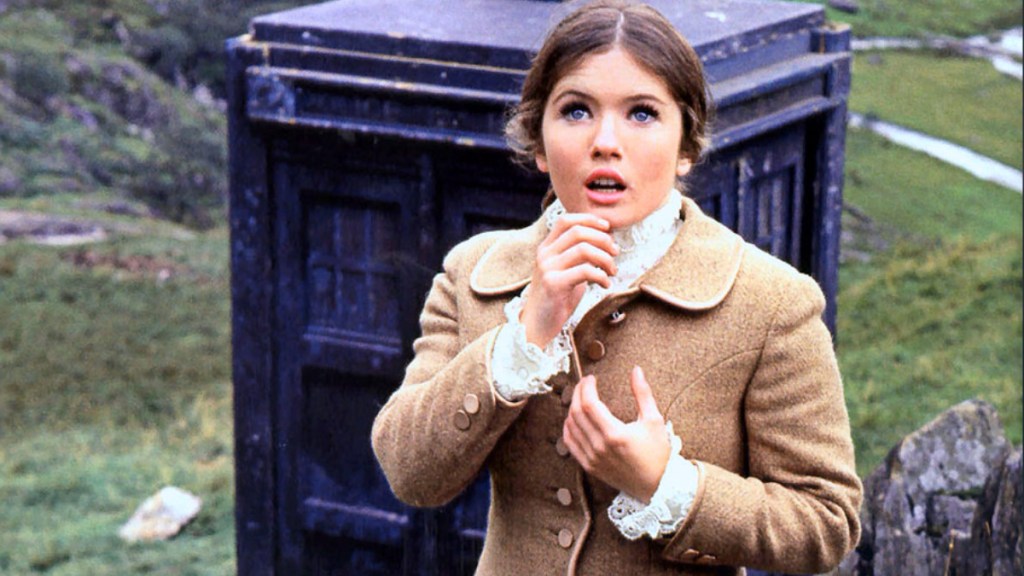
Add a Non-Contemporary and/or Non-Human Companion
In NuWho, the main companion character has often been situated as the audience surrogate. Because of this, Doctor Who writers have always chosen to make the character our human contemporary, which is to say from our own time and also from Earth—more specifically, the U.K. While there have been exceptions to this rule, from Nardole to Victorian Clara, they have always been fleeting and/or tertiary characters, rather than a central character. Classic Who has a history of much more temporally and planetarily diverse companions. For example, Second Doctor companion Victoria was snatched from 1866 England by the Daleks before the Doctor and Jamie saved her and she continued on the TARDIS with them. Elsewhen, Fourth Doctor companion Romana was a Time Lord from Gallifrey, like the Doctor. After so many seasons of contemporary, British Earthers traveling in the TARDIS, I would love to see Doctor Who get a bit more creative with one or more of their main companions in Season 14. If undertaken earnestly, it would be a simple way of challenging the show’s storytellers to explore new cultures and/or dynamics across multiple story arcs. Kayti Burt
Stop Looking Inwards and Attract a Wider Audience
Much has been made, in this ongoing culture war that grinds against our minds 24/7, of the idea that Doctor Who is somehow a woke show now, as if the show hasn’t addressed political, social and environmental concerns since its first story, or fan forums weren’t simmering with threads unironically titled ‘The Gay Agenda’ in 2005. There are some obvious differences now: firstly the aforementioned cultural shift whereby anything remotely progressive is an affront that must be removed, and secondly the fact the show now has a female lead and more Black and Asian actors in the main cast.
Another important difference to, say, Russell T. Davies or Barry Letts’ approach, is that the writing is noticeably patchier. The concepts in the stories are not necessarily bad, but there’s both a cynical edge and a feeling that the characters are defined more by trauma or disability than beliefs or behaviour. The issue is not that Doctor Who is suddenly woke, it’s that the writing isn’t strong enough often enough.
So what I want for Doctor Who to do next is make me want to watch again, but ideally to continue with what worked with Chibnall’s approach – and despite my criticisms I believe there are successes here. The show should maintain all the elements that would annoy Piers Morgan, but also it needs to reach out to a wider audience as it did in 2005. Much as I enjoyed Steven Moffat’s era, it began to look inwards to the show’s mythology more often than it did outwards, and this needs to be reversed. Andrew Blair
Doctor Who Season 13 will air on BBC One and BBC America this autumn.

